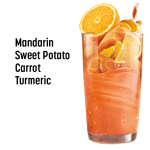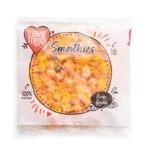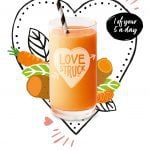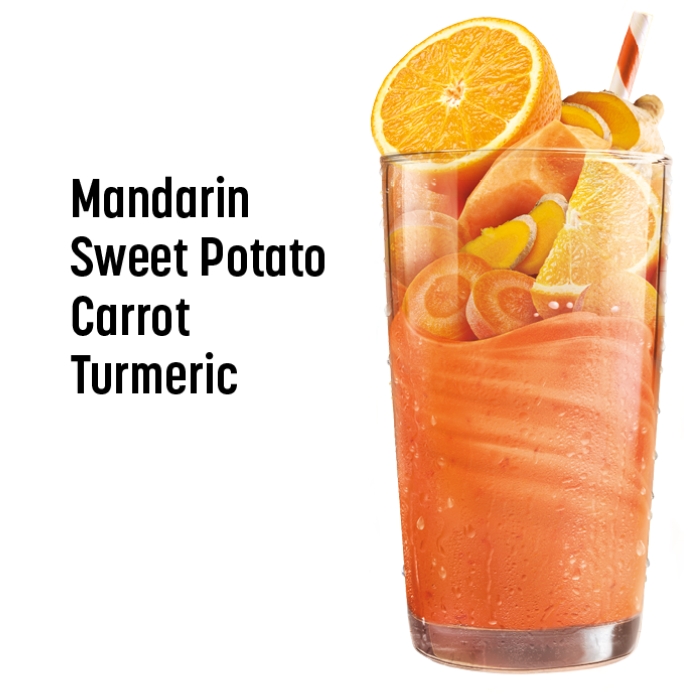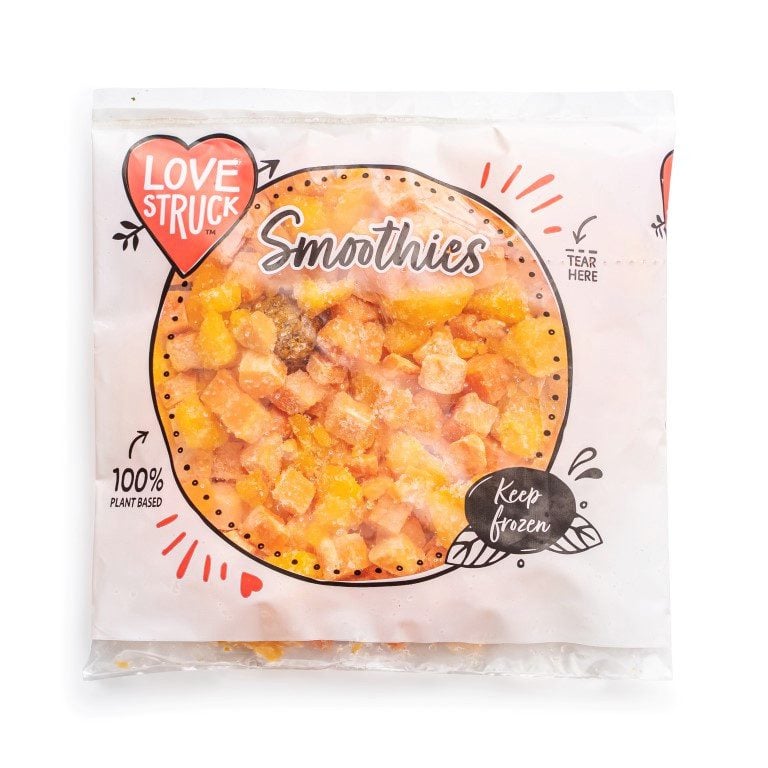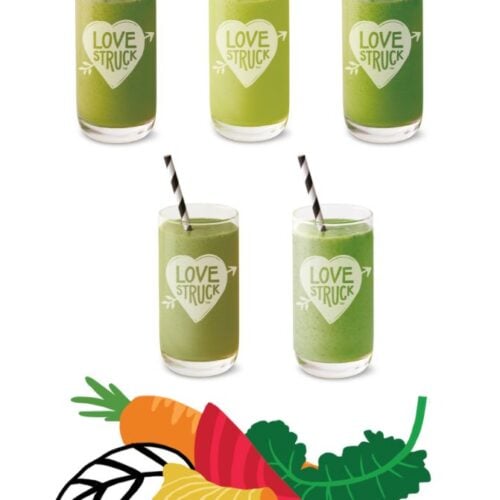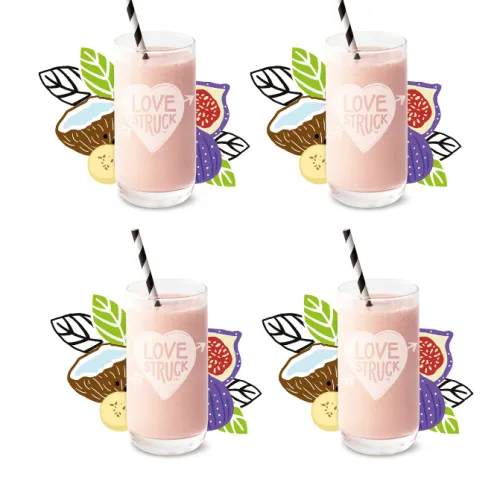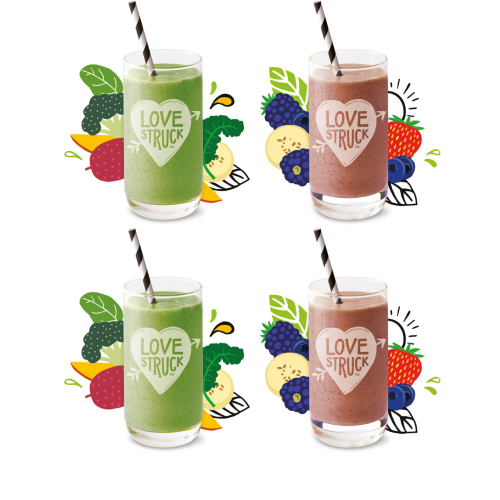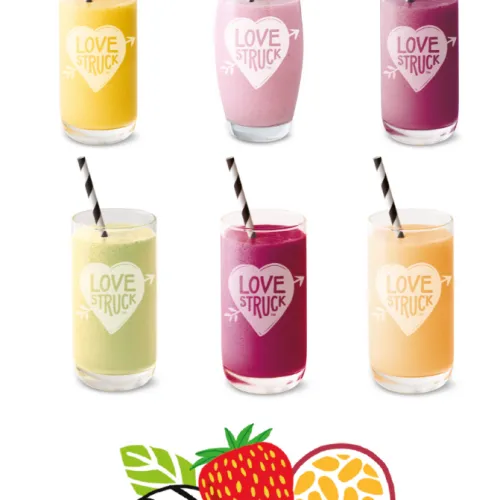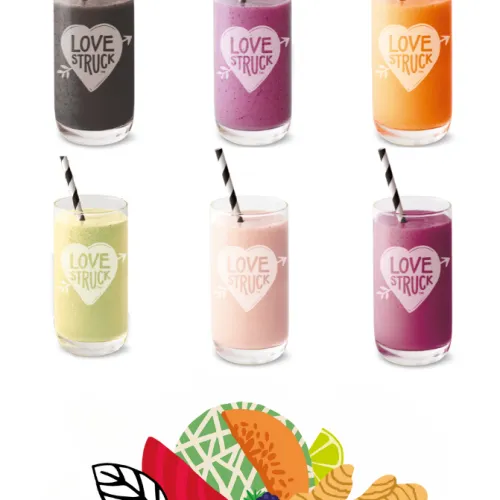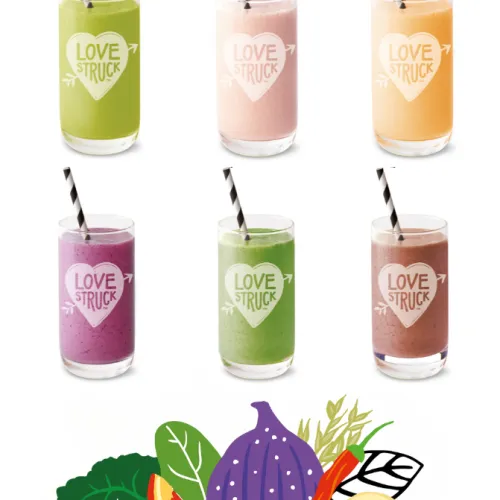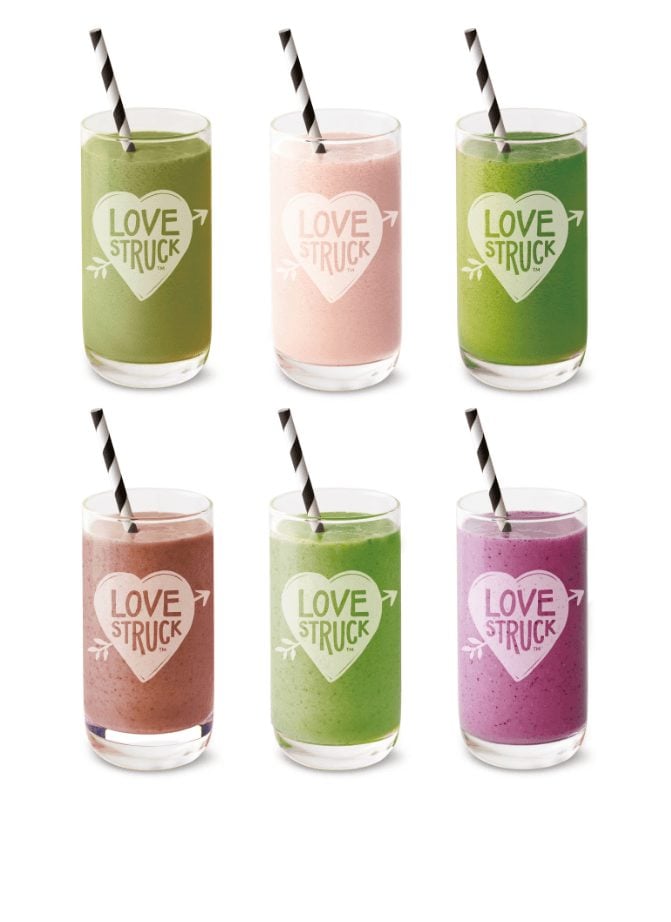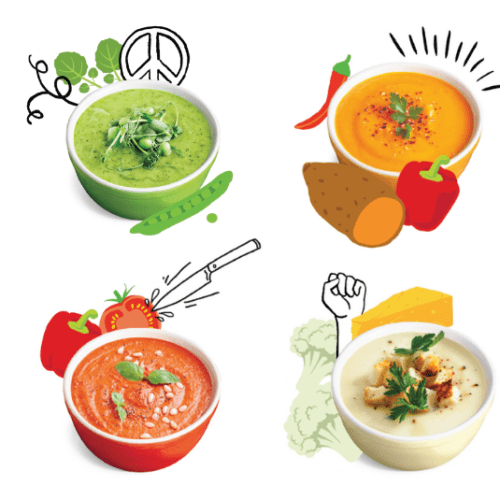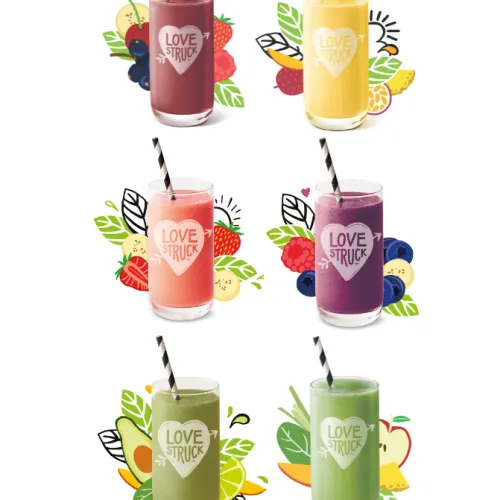24 Carrot Gold Smoothie
Strike gold, with rich pickings of mandarin, sweet potato, carrot and turmeric to help you shine.
Ingredients
Mandarin, Sweet Potato, Carrot, Turmeric
Good for DEFENSE
- Carrots, mandarins are sweet potatoes are all high in vit C and will help your body build antibodies (lord knows we need that these days!). Vitamin C also helps your body take in and use iron and prevent infections.
- Turmeric (and its active compound curcumin) is a potent anti-inflammatory and antioxidant.
Blend it with
- 200ml apple juice for a beautifully balanced drink (179kcal)
- 200ml orange juice for a tarter, zingier taste and max vit C (178kcal)
Nutritionals (per 100g)
| Typical values | Per 100g |
|---|---|
| Energy KJ | 253.0 |
| Energy kcal | 60.0 |
| Carbohydrates | 12.2g |
| – of which Sugars | 7.4g |
| Dietary Fibre | 2.5g |
| Salt | 0.06g |
| Protein | 0.9g |
| Fat | 0.4g |
| – of which Saturates | 0.1g |
| Allergens | – |
| Free From | Nuts, Gluten, Wheat |
Rated: Excellent
13/02/24
08/07/21
25/06/21
We love it
Ask us Anything
What should I blend my smoothies with?
You can blend your smoothies with almost any liquid of your choice – we recommend using 200ml apple juice, but for a lower GI option you could use coconut water, almond or oat milk, half water/half juice, pineapple juice, or even a mix of water and Greek yoghurt. There’s a handy little chart here showing you which juice is the best option for each flavour.
What should I blend my shakes with?
You can blend your shakes with dairy milk or any nut mylk, but please note that the shakes do contain milk powder, so they are NOT vegan. Simply add 150ml milk to your blender, then the contents of the sachet, blitz for 30 seconds (maybe giving it a shake half way through) and voila! Creamy, indulgent shake, done.
How many calories are in 150ml milk?
Add approx. 90 calories for full fat cow’s milk, 80 cal for soya, 55 cal for skimmed/oat milk and 25 cal for almond.
What should I blend my soups with?
You should blend your soup with 200ml boiling water, or if you’re after a stronger taste, vegetable stock. Please make sure that your blender won’t crack if you pour boiling water straight into it! If you’re unsure, put the contents of the sachet in first, measure the water in a beaker/measuring jug, then pour it in over the frozen veggies.
Is there anything else apart from vegetables in the sachets?
Yes, we use stock powder (which includes yeast), spices, sometimes some lemon zest and seasoning to give our soups a lovely rounded flavour. We also use coconut milk for the pea and the sweet potato soup. But never ever anything artificial.
How big are the sachets, and the blended portion?
Each smoothie sachet is 140g, and after blending with 200ml liquid you will get a 12oz smoothie. That’s a standard UK size, the same as you’ll get in a café. We find it’s a large-ish portion for an adult, or two smaller portions for kids. Each smoothie has its own ‘nutritionals’ section – for example, see Pash n Shoot here – which gives you the calories per 100g and all the other info you might need.
Shakes are 160g, and a blended portion is 12 oz, a bit bigger than a regular McDonalds shake (but oh so much better for you!). If you click on each of the flavours, you’ll see the calorie content of each sachet (that’s excluding milk).
Soups are 170g per sachet, and a blended portion is equivalent to roughly half a tub of fresh soup which you would find in a supermarket. If you click on each of the flavours, you’ll see the calorie content of each sachet, and since you’re making them up with water, the total soup calories.
Finally, our cocktail pouches vary between 170g and 226 g depending on the flavour, but each pack is a double portion. You’ll get more for a pina colada as it’s a longer drink than you will for a pornstar martini. Each portion is £2, but as the sachets are for a double serve, 1 sachet = £4.
How long can I keep my smoothies/shakes/soups for?
They will keep for up to 2 years from production date in your freezer, but check each packet for its own Best Before End date. If your packs have defrosted a little in transit, don’t worry, simply stick them straight in the freezer and they’ll be good to go. A lumpy sachet may take a little longer to blend, so either give it a few minutes to defrost before blending, or a good bash with a rolling pin if particularly chunky!
Are frozen fruit smoothies good for you?
We pick our fruit and veg at peak ripeness and blast freeze them almost straight away. This means that they retain as many vitamins and minerals as their fresh counterparts. In fact, because fresh produce is often picked when it’s not ripe and artificially ripened in transit with ethylene (yikes!), frozen fruit is actually higher in key vitamins (for example Vit C in blueberries).
Have you also noticed how bottled smoothies seem to all taste of banana? They’re the most common addition to smoothies because they add sweetness, body, and nutrients. We’re obviously a bit biased here, but this means that the problem with ready-made is that there is too much sugar (sweetened fruit juice, sugary frozen yogurt, dollops of honey, all those bananas). So it’s pretty safe to say that frozen packs are healthier than bottled smoothies.
Finally, because we use the whole of the fruit and veg in our smoothies, you’ll get all the fibre in your drink, and therefore a slower sugar release. If you want to lower the GI even further, use coconut water, almond milk or water as your blending liquid. Having a wide variety of different fruit & veg gives our smoothies a depth of flavour as well as nature’s wonderful variety of vitamins, antioxidants and minerals.
Can I recycle the packaging?
Yes of course! You can recycle the outer cardboard box and insulation with your normal recycling, and the little sachets together with supermarket bags. UK law states that we can’t yet use recycled plastic for food packaging, but we’re working on a couple of more sustainable options for the future – watch this space!













